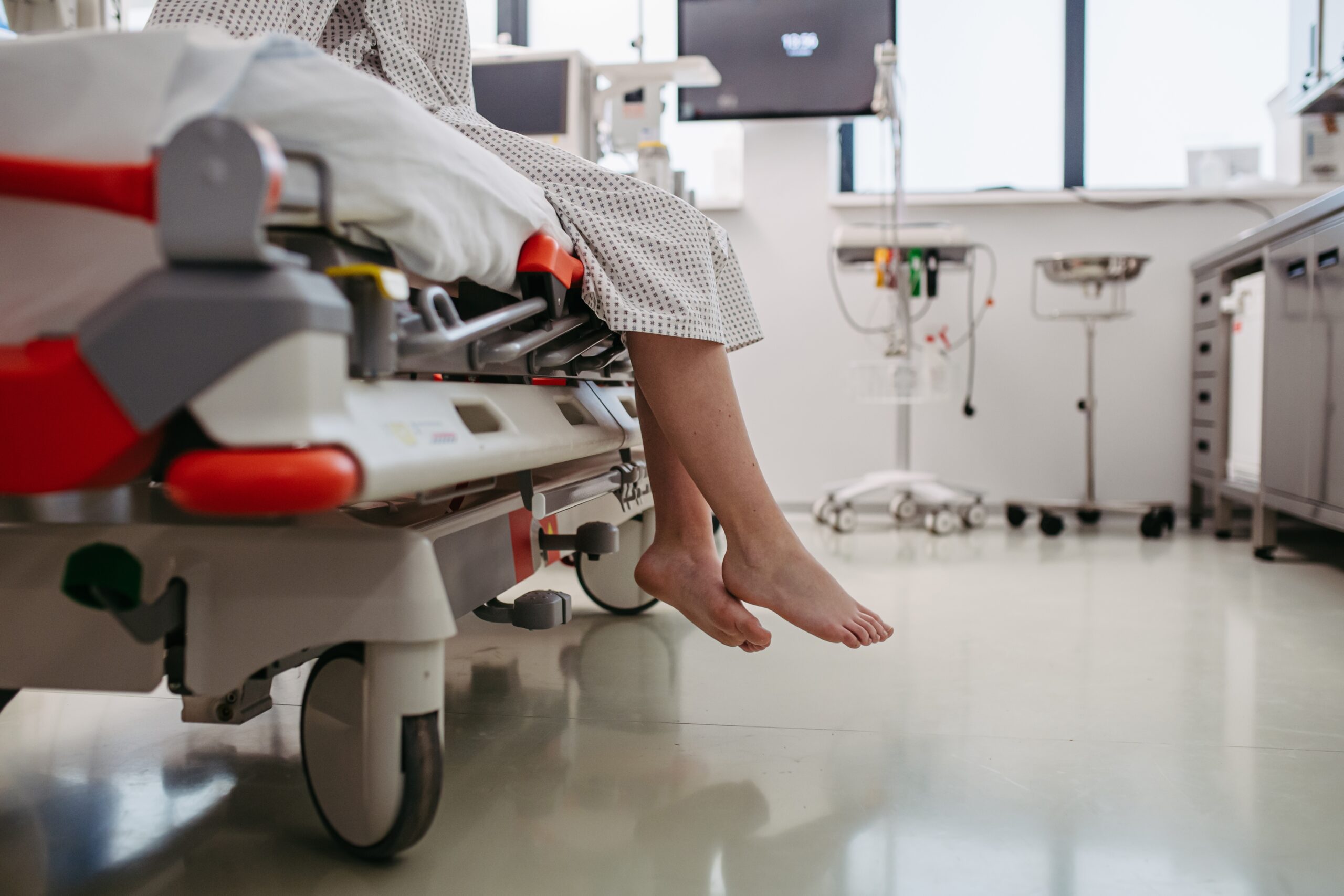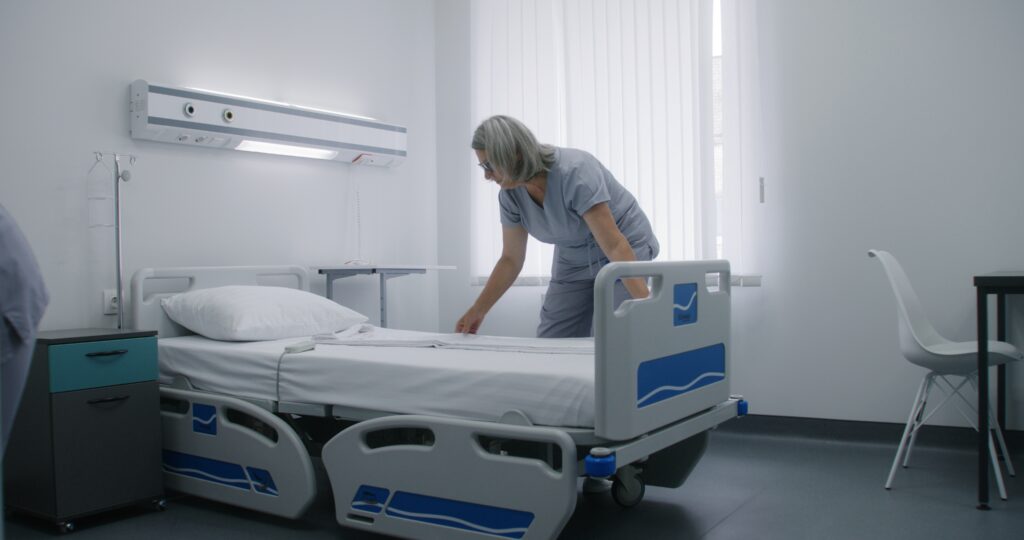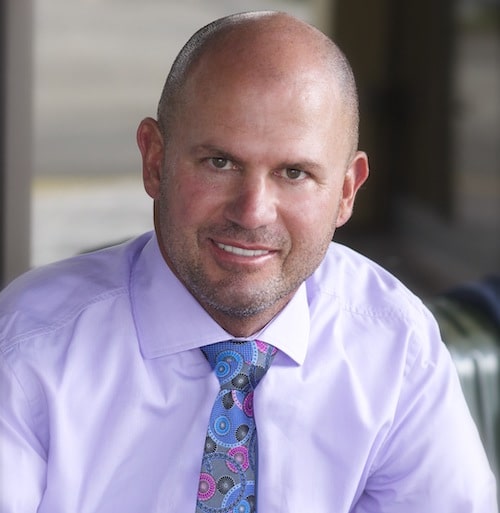Are Hospitals and Nursing Homes Responsible for Bedsores?
Gregg Hollander | October 8, 2024 | Nursing Home Neglect & Abuse

Bedsores, also known as pressure ulcers or decubitus ulcers, are a common and often preventable injury that occurs when prolonged pressure on the skin reduces blood flow, causing the skin to break down. Bedsores can develop on various body parts, most commonly in areas with bony prominences like the hips, heels, and tailbone. While they can occur in anyone with limited mobility, bedsores are especially prevalent among elderly individuals and those with significant health issues who are confined to a bed or wheelchair for extended periods.
In hospitals and nursing homes, where patients and residents often require assistance with movement, bedsores are unfortunately too common. These injuries not only cause physical pain and suffering, but they can also lead to severe infections, prolonged hospital stays, and even death if not adequately treated.
When bedsores develop in healthcare settings like hospitals or nursing homes, many people wonder: Are hospitals and nursing homes responsible for bedsores? The answer is often yes, but liability depends on several factors, including whether the institution failed to provide the necessary care to prevent or treat the bedsores. This blog will explore the legal responsibilities of hospitals and nursing homes, discuss the factors that contribute to bedsore development, and explain how patients and their families can seek compensation with the help of a West Palm Beach bedsore lawyer if negligence is involved.
What Are Bedsores and How Do They Develop?
Bedsores are injuries to the skin and underlying tissues caused by prolonged pressure. They often occur in people who have difficulty moving on their own, such as elderly individuals, patients recovering from surgery, or individuals with certain disabilities. Without regular movement, areas of the skin are deprived of oxygen, which leads to tissue damage and eventually causes ulcers to form.
Bedsores develop in stages, each progressively worse than the last:

- Stage 1: Redness and skin irritation, but no open wound.
- Stage 2: Partial-thickness loss of skin, leading to an open wound or blister.
- Stage 3: Full-thickness loss of skin, exposing the underlying fat.
- Stage 4: Full-thickness loss of skin and tissue, exposing bone or muscle.
In addition to prolonged pressure, other factors that contribute to the development of bedsores include:
- Friction: When the skin is rubbed against clothing or bedding.
- Shearing: When the skin moves in one direction while the underlying tissues move in another, such as when a patient slides down in a bed or wheelchair.
- Moisture: Excessive moisture from sweat, urine, or feces can break down the skin, making it more susceptible to pressure ulcers.
If not treated promptly, bedsores can cause serious complications, including infections like cellulitis, bone infections, and sepsis, a life-threatening condition that can result from the spread of infection.
Are Hospitals and Nursing Homes Legally Responsible for Bedsores?
The short answer is that hospitals and nursing homes can be held legally responsible for bedsores if their negligence contributed to the development or worsening of these injuries. Healthcare providers are required by law to provide a certain standard of care, and part of that standard involves taking steps to prevent bedsores in patients and residents who are at risk.
To understand whether a hospital or nursing home is liable for a bedsore injury, it’s essential to understand the concept of duty of care and how it applies in these settings.
Duty of Care in Healthcare Settings
Hospitals, nursing homes, and other healthcare facilities have a legal duty of care to their patients and residents. It means they are required to provide care that meets an accepted standard of medical and professional practice. For bedsores specifically, this standard involves assessing a patient’s risk for developing bedsores and taking proactive steps to prevent them.
For example, healthcare providers must:
- Regularly reposition patients to relieve pressure on vulnerable areas of the body.
- Provide clean and dry bedding to prevent skin irritation from moisture.
- Monitor the skin for early signs of bedsores and take immediate action if they begin to develop.
- Ensure proper nutrition and hydration, as malnutrition can make the skin more susceptible to breakdown.
- Provide medical treatment for existing bedsores to prevent them from worsening.
If a hospital or nursing home fails to meet these basic standards of care, they may be held liable for any resulting injuries.
Negligence and Liability for Bedsores
Negligence occurs when a healthcare provider fails to exercise the level of care that a reasonably competent professional would have provided in the same circumstances. In the case of bedsores, negligence might involve failing to reposition a bedridden patient regularly, ignoring early signs of skin irritation, or providing inadequate medical care once a bedsore has developed.

To prove negligence in a bedsore case, the injured party (or their legal representative) must demonstrate the following elements:
- Duty of care: The healthcare facility owed the patient or resident a duty to prevent bedsores or provide appropriate care.
- Breach of duty: The facility failed to meet that duty by not following proper procedures or providing the necessary care.
- Causation: The breach of duty directly caused the patient’s bedsores or worsened an existing condition.
- Damages: The patient suffered harm from the breach, such as physical pain, infection, or even death.
If these elements are proven, the hospital or nursing home can be held liable for the patient’s injuries and may be required to pay compensation for medical bills, pain and suffering, and other related damages.
Common Scenarios in Bedsore Liability Cases
Not all cases of bedsores result from negligence, but there are many scenarios where a healthcare facility may be held liable. Here are some common examples of situations where hospitals or nursing homes may be responsible for bedsores:
Failure to Reposition the Patient
A bedridden patient develops severe bedsores on their tailbone and heels after being left in the same position for an extended period. Despite being aware of the patient’s risk for bedsores, the nursing staff failed to follow a regular repositioning schedule.
In this case, the nursing home can be liable for failing to take the necessary preventive measures.
Ignoring Early Signs of Bedsores
A patient in a hospital shows early signs of redness and skin irritation on their back, but the staff does not take action to relieve pressure or treat the area. Over time, the irritation worsens into a full-blown bedsore, requiring extensive treatment and causing the patient significant pain.
The hospital may be held responsible for not responding to the early signs of bedsores and allowing the condition to deteriorate.
Inadequate Staffing
A nursing home is understaffed, and a limited number of caregivers are unable to provide the necessary level of care for all residents. As a result, multiple residents develop bedsores because they are not being repositioned regularly or receiving proper skin care.
In this scenario, the nursing home’s management can be held liable for failing to maintain adequate staffing levels, which can lead to neglect and the development of bedsores.
What to Do if a Loved One Develops Bedsores in a Healthcare Facility
If you suspect that a loved one has developed bedsores due to negligence in a hospital or nursing home, it’s important to take action as soon as possible. Here are some steps you can take:
- Document the condition: Take photographs of the bedsores and keep detailed records of the patient’s symptoms, treatment, and conversations with healthcare providers.
- Seek medical attention: Ensure your loved one receives prompt and appropriate treatment for the bedsores to prevent them from worsening.
- Consult with an attorney: Reach out to a knowledgeable personal injury attorney well-versed in nursing home neglect or hospital liability. They can help you determine whether negligence played a role in the development of the bedsores and guide you through the legal process.
- File a complaint: In addition to pursuing legal action, you may want to file a complaint with state or federal regulatory agencies that oversee healthcare facilities.
The Statute of Limitations for Bedsore Cases
For individuals who have suffered from bedsores due to medical negligence and their families, it is important to understand the statute of limitations associated with such cases. A statute of limitations is a legal timeframe within which a lawsuit must be filed. If a claim is not filed within the specified period, the injured party may lose their right to seek compensation.

The statute of limitations varies from state to state and can also depend on the circumstances surrounding the case. It is vital to consult with a skilled nursing home injury lawyer to determine the specific statute of limitations that applies to your situation. They can guide you through the legal process, ensuring you meet all deadlines and requirements.
In many states, the statute of limitations for medical negligence cases, including bedsore cases, can range from one to three years from the date of the injury or when the injury should have reasonably been discovered. However, some states have different rules for cases involving medical negligence, and it is in your best interest to consult with an attorney well-versed in the laws of your jurisdiction.
How a Personal Injury Attorney Can Help in Bedsore Cases
A personal injury attorney can assist in pursuing a legal claim and seek the compensation you deserve. They can help in many different ways.
Understanding the Complexity of Bedsore Cases
Bedsore cases can be complex and require a thorough understanding of medical procedures, protocols, and expert opinions. Proving negligence in these cases involves demonstrating that the healthcare provider failed to provide the necessary standard of care, which directly resulted in the development or worsening of bedsores. It often requires a comprehensive review of medical records, consulting with medical experts, and gathering evidence to support your claim.
Evaluating the Extent of Damages
In a bedsore case, the extent of damages suffered by the patient is a significant factor. It goes beyond the physical harm caused by the bedsores and may involve assessing emotional distress, pain and suffering, medical expenses, future medical care, and lost income. A skilled personal injury lawyer can help evaluate the full scope of damages incurred due to care provider negligence and ensure you or your family member receives fair compensation for your injuries.
Building a Strong Case
To build a strong bedsore case, your personal injury attorney will work with you to collect the necessary evidence, interview witnesses, review medical records, and consult with medical experts. They will use their knowledge and skills to identify deviations from the standard of care and establish a clear link between the healthcare provider’s negligence and the development or worsening of bedsores. This comprehensive approach is imperative in proving medical negligence and maximizing your chances of a successful claim.
Navigating the Legal Process
Navigating the legal process can be overwhelming, especially when dealing with the aftermath of developing a bedsore. A compassionate personal injury attorney can guide you through each step, ensuring your rights are protected and advocating for your best interests. They will handle all communication with insurance companies, negotiate on your behalf, and, if necessary, represent you in court. Having a knowledgeable nursing home injury lawyer by your side can give you peace of mind and increase the likelihood of a favorable outcome.
Seeking Fair Compensation
One of the primary goals of pursuing a bedsore case is to seek fair compensation for the damages you or your loved one has suffered. Compensation can cover medical expenses, ongoing treatment costs, lost income, pain and suffering, and other damages resulting from the healthcare provider’s negligence. Your personal injury attorney will fight to ensure you receive the full and fair compensation you deserve, taking into account both the physical and emotional impact that the bedsores have had on your life.
Did Your Loved One Develop a Bedsore in a Hospital or Nursing Home? Call An Experienced Attorney Today

Gregg M. Hollander, West Palm Beach Bedsore Lawyer
Bedsores are a preventable condition that should never be ignored in healthcare. Hospitals and nursing homes are legally responsible for preventing bedsores by providing proper care, monitoring, and treatment. When they fail to meet these standards, patients can suffer serious harm, and the facility may be held liable for negligence.
If you or a loved one has suffered from bedsores due to inadequate care in a hospital or nursing home, you have the right to seek justice and compensation. Working with an experienced West Palm Beach personal injury attorney can hold the responsible parties accountable and ensure your loved one receives the care they deserve. Contact one today to get the legal representation you deserve.
